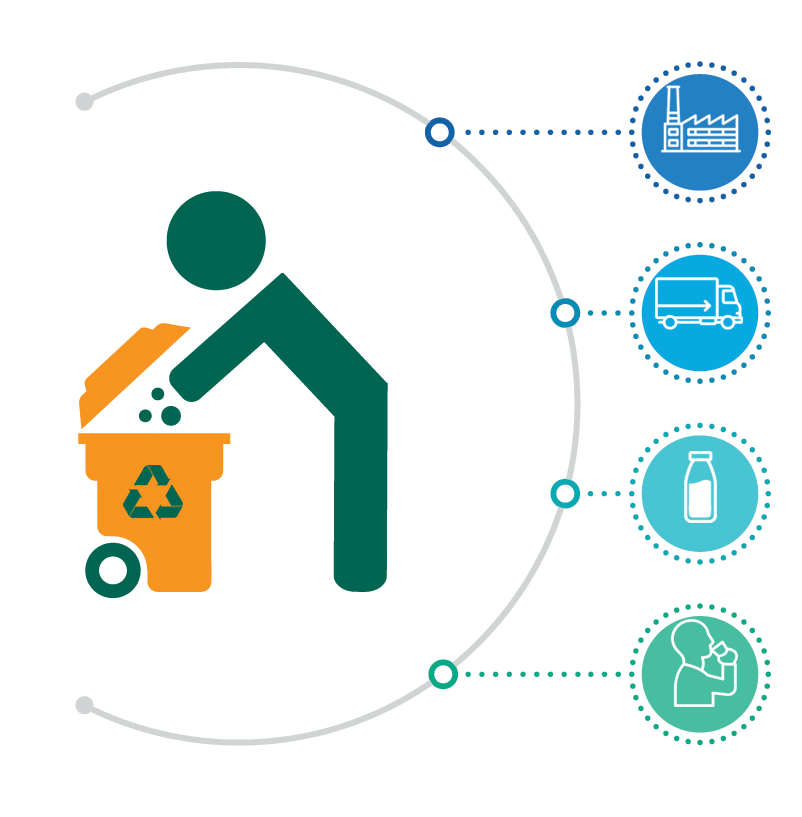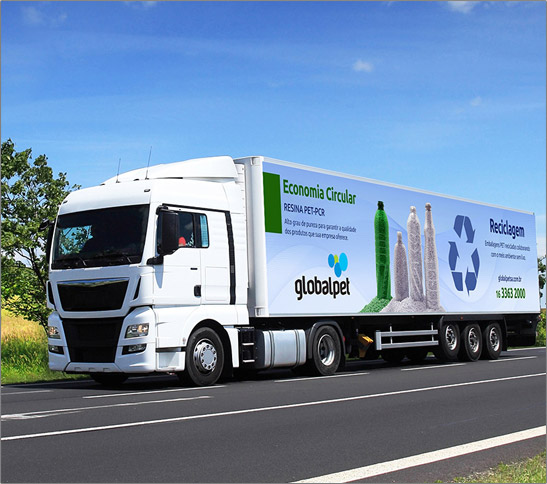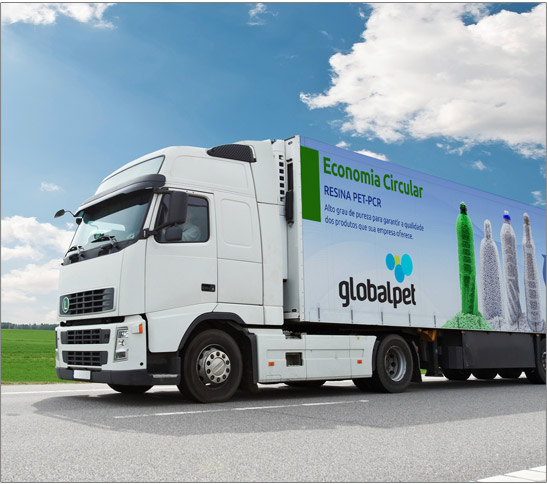Circular Economy
National Policy on Solid Waste
Law No. 12,305 / 10, which establishes the National Solid Waste Policy (PNRS), is very current and contains important tools to enable the country to advance in addressing the main environmental, social and economic problems arising from the inadequate management of solid wastes. It provides for the prevention and reduction of waste generation, proposing the practice of sustainable consumption habits and a set of instruments to increase the recycling and reuse of solid waste (which has economic value and can be recycled or reused) and the environmentally sound disposal of wastes (which can not be recycled or reused).
It establishes the shared responsibility of waste generators: from manufacturers, importers, distributors, traders, citizens and owners of urban solid waste management services in Reverse Logistics of waste and post-consumer and post-consumer packaging.
It creates important goals that will contribute to the elimination of the dumps and institutes instruments of planning at the national, state, microregional, intermunicipal, and metropolitan and municipal levels; in addition to requiring individuals to prepare their Solid Waste Management Plans.
It also places Brazil on an equal footing with the main developed countries regarding the legal framework and innovates with the inclusion of recyclable and reusable waste collectors and recyclers, both in Reverse Logistics and in Selective Collection.
Global PET shares the view that PNRS is a positive and modern initiative for industrial, social and environmental preservation. The goals and the system of shared responsibility should be clarified and regulated as soon as possible, because to date, industries, commerce and municipal municipalities are in disagreement with the PNRS, which is still without inspection and without penalties.
Global PET believes that the best way to promote reverse logistics and recycling is through the reintegration of recycled materials into the packaging chain. For there is no reason to promote reverse logistics and recycling systems if there is no consumption for the recycled raw material. What we find today are several initiatives of reverse logistics and recycling with enormous difficulties to develop and establish as a solution to the problem of garbage. This is because the recycled raw material produced today has no place in industry.
Sustainable cities will have to play with excellence all the concepts involved in the new theories of “Circular Economy”, where all the synthetic products must be thought for the facility of its recycling and must always be considered as raw material for something, nothing else can be considered trash.

Conversion
Global PET captures post-consumer raw material and initiates conversion processes. With its own technology, it transforms post-consumer PET packaging into a high purity raw material (PET-PCR).
Transport
With its own fleet of trucks, Global PET delivers PET-PCR resins and PET flakes to industries specializing in the production of packaging and other products. The control ensures the integrity of the material.
Production
The PET raw material converted into PET-PCR resin is ready to be transformed into bottles, packaging, textiles, components, accessories, etc., and distributed to consumers.
Reuse
Packaging and PET products with different concentrations are ready to serve consumers. The high degree of purity of PET-PCR Global PET resin, allows the packaging of hygiene products, cleaning, food, beverages, cosmetics, among others.
Anvisa
RESOLUTION Nº 20, OF 26 MARCH 2008

The RDC 20/08 formalized rules for the production, commercialization and use of PET-PCR resin (Recycled Post-consumer) in the manufacture of packaging to offer direct contact with food. This resolution is the result of years of joint work of the health and health regulatory agencies of Mercosur member countries. Here you can find guidelines for recycling industries and packaging manufacturers who want to use PET-PCR resin as a substitute for PET-Virgin resin.
Global PET was the first Brazilian recycling company to be able to register its product at ANVISA – RDC20 / 08 using its own PET decontamination technology. This registration proves that the raw material produced by Global PET is safe for use in packaging of food products and also of special products, where color and perfume can not be changed, such as cosmetics, personal care products and household cleaning products.
Products specially developed to improve the performance of customers’ equipment. Global PET makes offers its customers PET-PCR resins specially developed to provide the best industrial performance. The technical staff of Global PET conducts a short interview with the technical staff of the client, seeking to understand the application in which one intends to use our products and the equipment involved in its transformation.
Usually a technical visit is recommended and a pilot lot is offered. The expectation of Global PET is that a PET-PCR resin suitable to the processes of each customer provides higher productivity, lower industrial losses and lower cost possible. With this, long-term partnerships are established and Global PET is able to follow its path of growth and solidification of its presence in the national market.
Own Fleet: Guarantee of Delivery


The Global PET offers the transport of delivery of its products with own fleet. In this way it is possible to guarantee the date and time of delivery and also the integrity of the products. However, the main advantage is the lower cost compared to the contracting of carriers. We take care that our customers have the best service for the lowest cost, ever. In this way, Global PET meets the needs of its customers with excellence.
